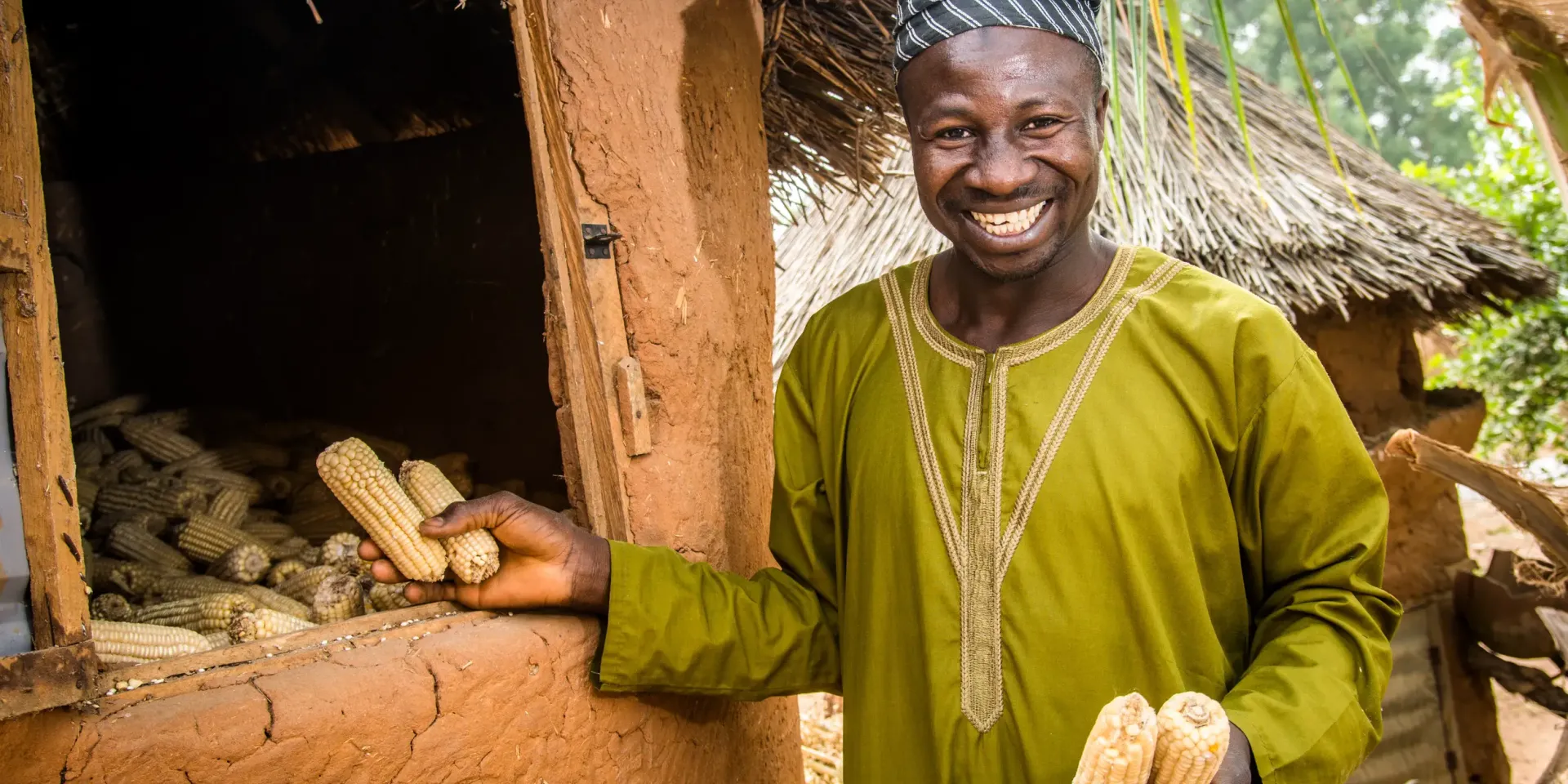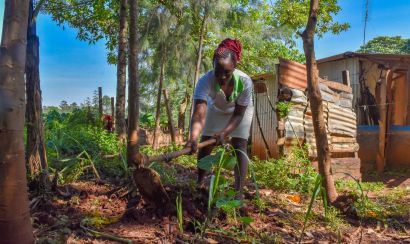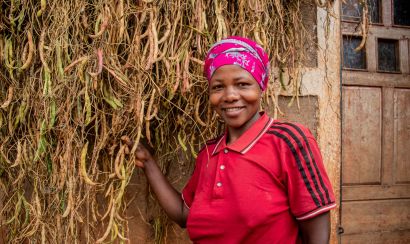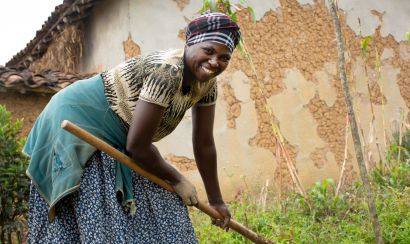One Acre Fund Nigeria: From Pilot to Full Country Program
When we started working in Nigeria in 2018, we served just 150 farmers. That figure grew year on year, and in 2022, we served 24,000 clients across three regions in Niger State: Minna, Mokwa, and Iseyin. We’ve developed, tested, and adapted our approaches over the last 4 years to help us better understand local agricultural challenges and opportunities and figure out how best to support Nigeria’s smallholders. Today, Nigeria is our highest-impact and fastest-growing full-country program – farmers generated an average of $338 in new profits in 2022, more than double our organization-wide average – with incredible room for growth.
Significant livelihood improvements
Close to 88 million people live in poverty in Nigeria, the majority in rural areas. That’s as many as in Kenya, Rwanda, Uganda, and Malawi combined. Smallholders in Nigeria own comparatively large land sizes – 3 to 4 hectares, which is larger than the 1.5 acres (0.6 ha) farmers in most of the other countries we serve. And, while Nigerian smallholders plant a rich mix of crops, they also experience large yield gaps – the difference between what they actually harvest per hectare and what they ideally should be harvesting – for maize and yams. This often affects their incomes and creates high rates of malnutrition (for example, 32% of under-fives experience impaired growth as a result of poor nutrition). There is a real opportunity to generate significant livelihood improvements for millions of smallholders, translating to large-scale community impact.
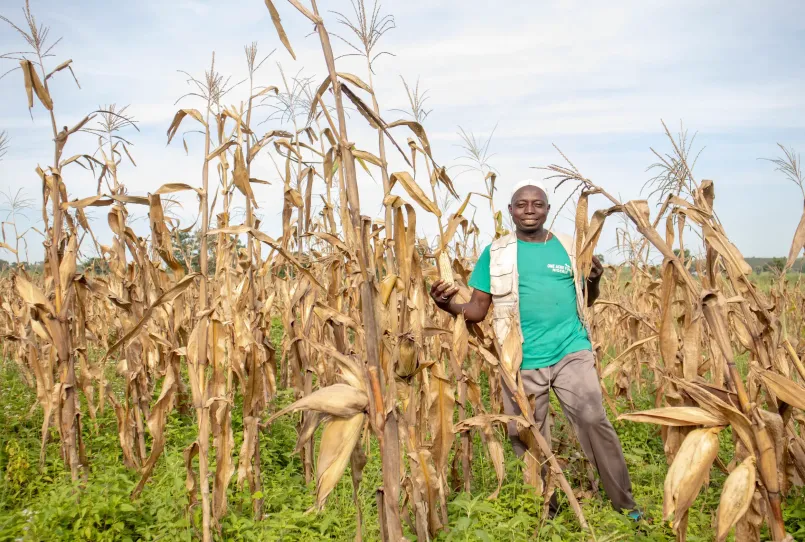
"Farming pays for my needs and the needs of other hard-working farmers in my community. I grow everything from maize to soybeans, groundnuts, yams, and mangoes. Honestly, before One Acre Fund, I only planted maize for consumption, but improved yields mean I regularly make money out of farming” — Alhaji Garba Aliyu, Nigerian smallholder from Minna in Niger State.
Tailored farming support
Smallholder farmers in Nigeria face many of the same challenges as those in our other program countries in Eastern and Southern Africa, including low yields, difficulties in accessing quality farm supplies, and the impacts of climate change and economic fluctuations. Our program offers customers the quality supplies and support they need to respond to and overcome these challenges. Our network of field officers delivers a tailored training program to help farmers maximize their yields and income. We provide farmers with high-quality maize seed and other staple crops and crucial farming supplies on credit and deliver these goods locally.
- Real impact, not just numbers: Our work isn’t just about numbers; we measure its impact on the lived experiences of farmers. To date, we have supported 24,000 farmer families to increase their incomes, generating $338 in additional farm profits, on average, during the main planting season. In 2021, we managed an average $298 impact per farming household.
- New agroforestry packages and long-term investments: We understand the importance of a multi-pronged approach to growth – different income streams create secure livelihoods. We are setting farmers up to diversify their income channels and create a holistic system that addresses various dimensions of agricultural development in the country. For example, we are introducing new tree and agroforestry packages that provide long-term investments for farmers. In 2022, we delivered 760,000 fruit and timber trees to farmers and served 82,000 farmers across the tree and core programs. In 2023, 180 nurseries will grow 2.5 million trees to benefit 100,000 farmers; we also have 10 shops under rural retail at the trial phase.
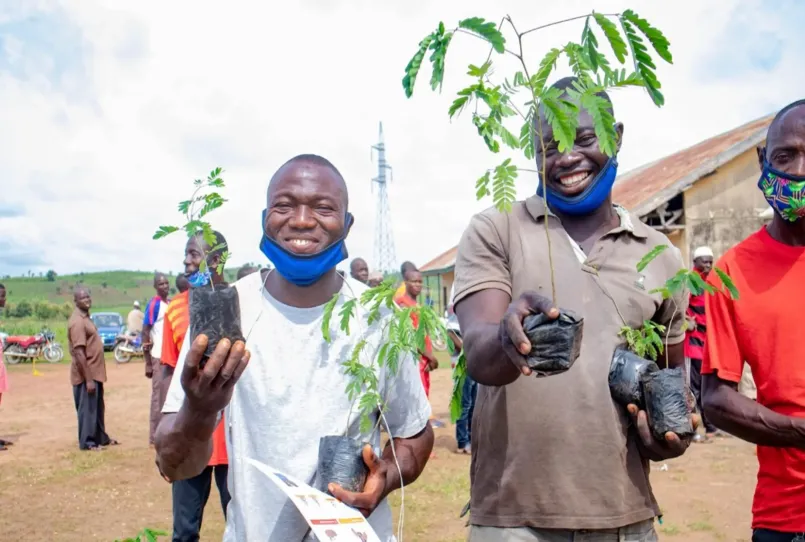
Opportunities for future growth
Over the past few years, we have made several innovations both to respond to existing challenges and build on our early work as we look to generate bigger impact and raise farmer incomes.
- Seed processing: We plan to offer newly enrolling farmers $70 worth of improved seeds (these are non-GMO, disease-resistant, high-yielding, and ecologically-adapted varieties), which could generate over $200 additional profit per farmer in year two and over $300 from year three onwards. This projection is the result of rigorous measurement, and if we meet it, it will make Nigeria the highest-impact One Acre Fund program.
- Agroforestry: Our tree program continues to grow at an impressive pace. We supply young fruit and timber trees to farmers, helping them diversify their incomes in the short term while offering long-term improvements to soil health and other climate resilience and adaptation benefits. Our goal is to help millions of farmers in Nigeria to own trees by 2030. A notable achievement is the Free Tree Planting Initiative, which started as a trial in 2020, distributing 4,000 tree seedlings to 480 farmers. In 2023, we will distribute 2.5 million trees to 100,000 farmers. We are increasing the number of trees we supply as quickly as possible to keep up with demand and expanding the variety we offer, which now includes oranges, cashews, and African mahogany.
- Rural retail: Our two rural retail stores have become vital hubs for farmers to access high-quality agro and quality-of-life inputs. These stores generated over $1 million in sales in 2022, opening new economic opportunities and enhancing access to farming inputs, like seed and fertilizer, for smallholder farmers. Many Nigerian farmers prefer cash transactions to the credit-based approach we use in our other country programs. Some of our customers also farm in the dry season. Increasing access to high-quality products, available year-round at competitive prices, benefits both categories and yields an estimated $50 in profits per farmer. To increase efficiency, we are working to enable farmers to place orders remotely (via USSD or phone calls to our contact center) and considering delivery options that allow us to reach as many farmers as possible at any given time.
“At first, I was skeptical when the farmers told me about One Acre Fund, but after a year of seeing livelihoods transformed, I am convinced. I like the trust between us; it is a fantastic relationship. Farmers’ harvests have increased – I have seen a farmer who harvested over 15 bags of maize in a single harvest – enough to feed his family and a surplus to sell. It is a good partnership” — Suleiman Abdullahi Dada, a traditional ruler in Minna, Niger State, and One Acre Fund Ambassador.
The contribution of agriculture to communities and national economies cannot be overemphasized. As One Acre Fund Nigeria continues to expand our reach and deepen our impact, farmers are charting the way towards a brighter future for farmers, their families, and the nation.
